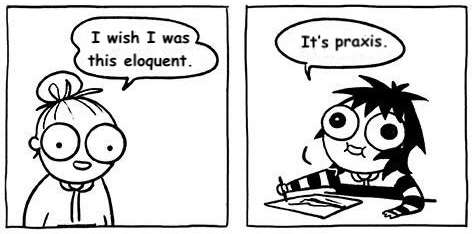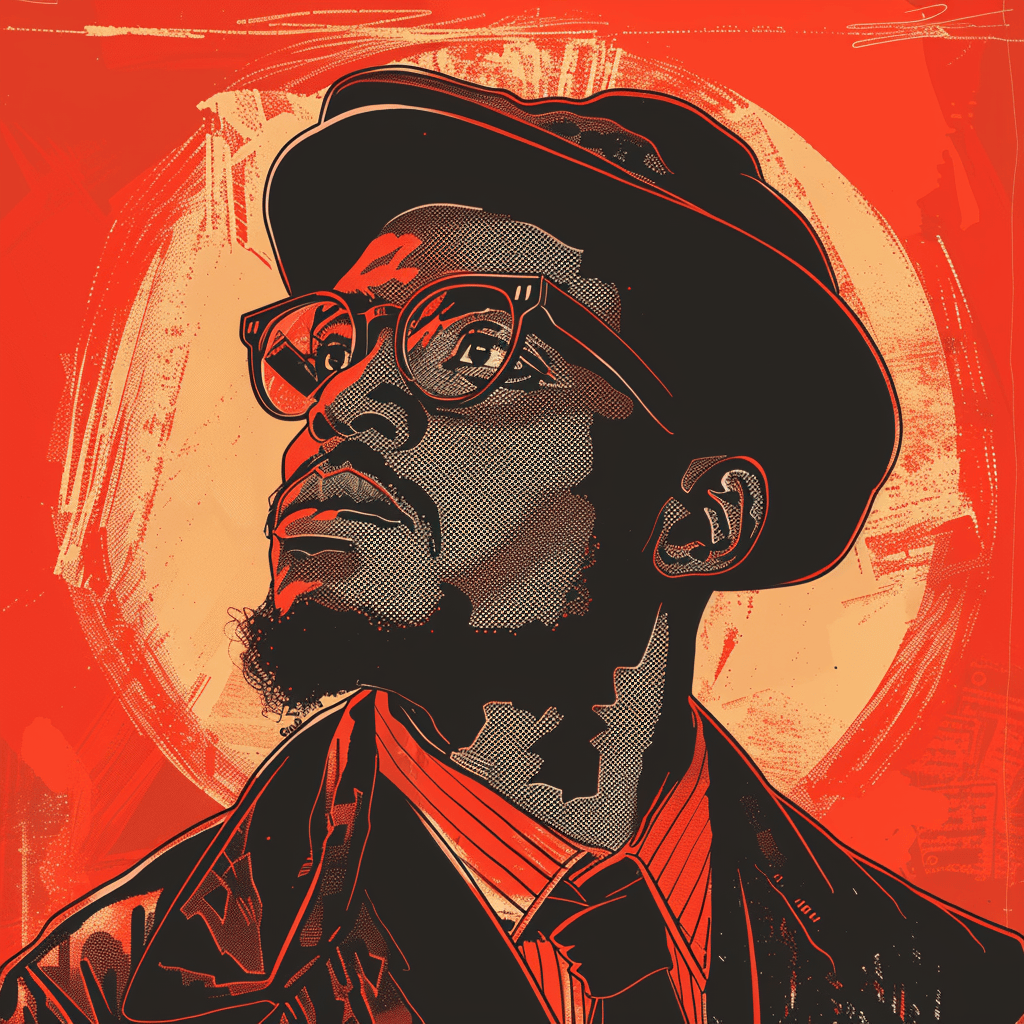In China you can change policies, but cannot change the party in power. In America it is the other way round.
We can change the parties in power?

Do you have a favourite colour and party mascot? You can pick from either this stunning blue donkey or brilliant red elephant.
Choice!
You can change the window dressing. :)
I usually go for Socratic questioning. Have them describe to you what they think a democracy is. 9/10 times they’ll give you a definition that makes having multiple parties irrelevant. Really get them to explain to you why their own view on China is inconsistent.
Notably, many of the U.S. founding fathers (I believe Washington in particular) did not want political parties go form, which is functionally the same as having one party.
Other people can give more thorough answers than me than I can, but since I’m first I’ll go ahead and say that I begin by asking them if they know what the national peoples congress is. They nearly always say no. Then I ask them if they know what the Politburo is and all of the layers of it. They usually say no. I’ll give them a short primer if they’re still interested that the National People’s Congress are direct people’s representatives voted in layers.
If they haven’t heard of anything and they’re at least kind of curious, I’ll tell them to start there because there’s actually a lot more voting going on than people think. You’ll never convince someone in one conversation that a country that they believe is not democratic, is actually democratic. But this is enough to get them to question things, and that’s pretty much how I started, so hopefully it helps others that I talk to.
If they’re willing to continue listening, then I mentioned that the government has a over 90% approval rate and has for a very long time. If I’m paying attention to the news lately and I’ve heard good things that liberals would actually support coming out of China, I will usually mention those. The most recent one about the workers’ rights to have a council on their board of directors in every company, that kind of stuff.
The hard one for people to get past is democratic centrism, but they need to learn a little bit about what communism actually is before they can stomach that. That usually comes off as anti-democratic. When in reality, it’s just a good fucking idea. They just need a better theoretical basis before accepting that democratic centrism is necessary to keep the peace.
If who I’m talking to is pretty pissy about United States democracy, then I usually put my thumb on that scale and ask them if they think that two parties trying to sabotage each other all the time is really a good strategy. Even if Democrats get something passed, if the Republicans turn around and spoil the barrel with their bad apples, then nothing can get done anyway. Even when you pass policy, it tends not to work.
If they’re a gun-toten red-blooded American, I’d probably just stick to the workers’ rights stuff. How their middle class alone is bigger than the entire United States population, and is growing, not shrinking as it is in the United States.
Other people can give more thorough answers [than I can]
Writes six paragraphs
Good response, btw
Yeah, I wrote that first and then after I was done. I was like, well, that’s not really relevant, but I’m not gonna take it out.
I wish I knew more about the governmental structure of China, do you happen to have any sources you can recommend for further reading?
I read The East is Still Red by Carlos Martinez, and Socialism with Chinese Characteristics by Roland Boer.
I also have in my possession Soviet democracy by Pat Sloan, but I have not read it yet, but I have heard that is a really good source for understanding the Soviet system too, of which the Chinese borrow their system from. Looking at the table of contents, it looks like it has a lot of good information. Topics like a equality of opportunity, the rights of the wage earner, What are Soviets, and some more good chapters I looks like. After thumbing through that, just now I think I need to push that to the top of my list.
I also just kind of googled around, which is honestly hard to get good information, but I was persistent and found out the different structures of the NPC and such. I also used chat GPT, which that was a while ago, so maybe things have changed, but if you prompt it correctly, like by saying " From a communist perspective, what does democracy look like under Soviet-style leadership?" Or " What are the various technical levels of government in China, including the NPC and CPC?" You can usually get good enough information that you can confirm with a separate search.
I live in the US. I laugh and ask them how much control they believe they have over this government. No one ever has a good response to that. Then you just shrug and say "I guess maybe we can’t judge if a system is a democracy based on how much it resembles ours then.‘’
Isn’t true democracy the people choosing what they want? Even according to western polling, the CPC has 80%+ approval from Chinese people.
Now on the point of there not being more parties, why does there need to be more than 1 party? The people are already satisfied with the CPC, so that alone is a non-starter. Further, multiple parties needlessly impede progress with each administration trying to undo the work of the previous one.
Most libs will argue back and say the Chinese citizens are brainwashed and forced to vote for the party or risk losing points on their social credit score.
Chinese citizens are brainwashed
While propaganda is real, brainwashing is bullshit cooked up by the CIA. The True Story of Brainwashing and How It Shaped America
Here, then, is the brief history of brainwashing. The concept began as an Orientalist propaganda fiction created by the CIA to mobilize domestic support for a massive military build-up. This fiction proved so effective that the CIA’s operations directorate believed it and began a furious search for a real mind control weapon. The search resulted not in a miraculous new weapon but a program of simulated brainwashing designed as a prophylactic against enemy mistreatment. This simulation in turn became the real basis for interrogating detainees in the war on terror.
social credit score
So annoying. Libs understand the social credit system the same way they understand Tank Man, which is to say not at all, except as a meme that they fill with their own dark fantasies.
I say they are correct. China, as USSR before it, is ruled by a Marxist-Leninist party practicing democratic centralism, meaning they are not liberal democracies by definition. From China’s (and USSR) perspective, they are practicing dictatorship of the proletariat, while western “democracies” are in fact dictatorships of the bourgeoisie.
https://en.wikipedia.org/wiki/Democratic_centralism
https://en.wikipedia.org/wiki/Liberal_democracy
https://en.wikipedia.org/wiki/Dictatorship_of_the_proletariat
https://en.wikipedia.org/wiki/Dictatorship_of_the_bourgeoisie
Once you get the basic terms straight and reach the agreement that China and other socialist states never claimed to have the same form of government as the Western democracies, you can start discussing which system of government gives it’s people actual power.
I’ll often take an indirect approach, dismantling their faith in their own ostensible democracy and questioning the validity of the institutions that claim China is authoritarian/totalitarian.
The US has never been and will never be a democracy, because it was born of a bourgeois revolution[1]. The wealthy, white, male, land-owning, largely slave-owning Founding Fathers constructed a bourgeois state with “checks and balances” against the “tyranny of the majority”. It was never meant to represent the majority—the working class—and it never has, despite eventually allowing women and non-whites (at least those not disenfranchised by the carceral system) to vote. [Princeton & Northwestern] Study: US is an oligarchy, not a democracy
The US working class got some temporary gains in the 20th century (and I could describe the extraordinary—unique, really—causes of them), but those are very unlikely to ever fully return under capitalism.
https://lemmy.ml/post/21571325/14400116 :
Ah yes, gotta lick those authoritarian dictator boots. So cool, so cool.
Ah yes, gotta lick those Global North neocolonial imperialist boots. So cool, so cool.
Why would you support any side if you know both are inherently bad?
Two things can be bad without being bad in the same way or at the same scale.
The Imperial core—which claims to be the model for and bringer of freedom and democracy—is far worse by comparison. Its actions over generations belie its words: it doesn’t give a rat’s ass about anyone’s freedom. Those not its core values; those are its excuses, its rationalizations, its cover story for imperialism, for “full-spectrum dominance.” They’re a neocolonial re-branding of the old colonial “bringing Christianity/civilization to the savage races” rationalizations.
Just one small example. The National for Endowment for Democracy isn’t about promoting democracy. It’s a CIA cut-out for enacting regime changes. Take it from Allen Weinstein, cofounder of the NED, “Much of what we do today was done 25 years ago by the CIA.”
The blueprint of regime change operations
Our governments and corporate media don’t tell us about the plight of Iranian women because they give a shit about them, or because it’s exceptionally bad. They don’t care about Iranian women any more than the Palestinian women they’re aiding & abetting the genocide of. Women’s rights in Saudi Arabia are arguably even worse, but the media aren’t going to talk about their plight, because our governments consider Saudi Arabia aligned with their interests. “National interests” aren’t our interests: they’re the interests of the capitalist class. The enemies of my government, which has only ever represented the wealthy[1], are not necessarily my enemies.
https://lemmy.ml/post/21571325/14420557 :
When people say authoritarianism it is reliably synonymous with totalitarianism as defined by Hannah Arendt, which is basically horseshoe theory, where fascism and communism are equivalated.
https://en.wikipedia.org/wiki/Authoritarianism#Examples
There is no one consensus definition of authoritarianism, but several annual measurements are attempted, including Freedom House’s annual Freedom in the World report. Some countries such as Venezuela, among others, that are currently or historically recognized as authoritarian did not become authoritarian upon taking power or fluctuated between an authoritarian, flawed democracy, and hybrid regime due to periods of democratic backsliding or democratization. Nazi Germany and Stalinist Russia are often regarded as the most infamous examples of “totalitarian” systems. Some countries such as China and various fascist regimes have also been characterized as totalitarian, with some periods being depicted as more authoritarian, or totalitarian, than others.
Hannah Arendt came from a wealthy family and was unsurprisingly anti-communist. Her work was financially supported and promoted by the CIA. The CIA and the Cultural Cold War Revisited
U.S. and European anticommunist publications receiving direct or indirect funding included Partisan Review, Kenyon Review, New Leader, Encounter and many others. Among the intellectuals who were funded and promoted by the CIA were Irving Kristol, Melvin Lasky, Isaiah Berlin, Stephen Spender, Sidney Hook, Daniel Bell, Dwight MacDonald, Robert Lowell, Hannah Arendt, Mary McCarthy, and numerous others in the United States and Europe. In Europe, the CIA was particularly interested in and promoted the “Democratic Left” and ex-leftists, including Ignacio Silone, Stephen Spender, Arthur Koestler, Raymond Aron, Anthony Crosland, Michael Josselson, and George Orwell.
The authoritarian states are whichever states the Council on Foreign Relations deems authoritarian this month. It just means “governments that Global North capitalists want regime changed,” and that’s usually because the authoritarian government is blocking their access to neocolonial profit-making.
Saving this for later. Good responses and links. I wish I was this eloquent.

😂
I found a YouTube link in your comment. Here are links to the same video on alternative frontends that protect your privacy:
I tell them China has multiple parties. What made them think it only has one? And what else did they say? Then we can go through the nonsense with a nit comb.
Edit: look at this shit: https://en.m.wikipedia.org/wiki/List_of_political_parties_in_China :
The People’s Republic of China is a one-party state ruled by the Chinese Communist Party (CCP). Despite this, eight minor political parties subservient to the CCP exist.
Wikipedia calls it a one-party state in the same opening paragraph that admits the existence of eight other parties. What’s the criterion for being a one-party state? That only one party rules at a time? A lot of states fall into that category. Would the CPC allow another party to take control? Unlikely. But again, if that’s the definition, then a lot of states fall into that category.
I find the problem with that is you start falling into the trap of implicitly accepting their narrative that the number of parties has any impact on whether the system is democratic or not. I’d argue it’s better to push back on the whole notion from the start.
That’s a good point!
The colon at the end of the url breaks it.
https://en.wikipedia.org/wiki/List_of_political_parties_in_China
Thanks. Fixed, I hope.

Ask them if they voted to drop a bomb on a country.
China should just have two versions of the same party without much changing when either is elected.
Depends how serious I think they are being.
If a genuine question and they are willing to learn, I will usually start with explaining the structure of the government in the given country and how leaders are elected. You do not need direct elections. Nor does democracy require having multiple political parties necessarily (though many countries they like to reference actually have more political parties than some western countries). Nor does the existence of multiple political parties mean the country is a democracy (Hi US). Nothing about the definition of a democracy says it requires multiple political parties or direct elections of a head of state.
In many AES states, a lot of issues are discussed and refined much earlier in the process. By the time something reaches the highest echelons of goverment, it has been reviewed and revised extensively. What might appear to outsiders as something just rumber stamped by the government has actually already been through the proverbial wringer, it wouldn’t have got that far without widespread popular support.
If it is a private setting and they are just trying to “gotcha”, I will probably just throw a meme at them and move on with my life because no amount of evidence to the contrary I show them would change their mind. It would be a waste of my time.
In a public venue and they are still doing the “gotcha” thing, I will probably engage like in the first example for the benefit of anyone else who might be listening/reading.
Multiple considerations:
-
On authority: in a superficial analysis if 60% of a population vote one way and 40% vote another then 60% have authority over the 40%; and this authority is ultimately backed by violence.
-
On liberal democracies: what if despite the above procedural mechanism the governing apparatus ultimately is beholden to the capital class? We could then describe liberal democracies as democracies for the capital class and authoritarian on the working classes.
-
On voting; is voting every few years for a party that comes to power that makes decisions outside of the control most of the population really considered a democracy for the majority of people? What about democracy on where funding is invested in your local towns or district? How about democracy in your workplace? How about democracy in foreign policy?
-
Could other types of democracies exist? One would need a governing system that is then more powerful than capital. How would this look like? What if there was a system where people voted on policies rather than wasting time and resources on selecting a party who may ultimately not be responsive to their needs?
-
On power; the concerns about concentration of power is the accumulation of wealth at the expense of the population. One would then have to consider what kind of democratic feedback loops are in place in countries like China where they have lifted 800 million people out of absolute poverty in the shortest timescale seen in human history and continued an accelerated development?
Here is a paper, by liberals attempting to figure out why an “authoritarian” country like China is significantly more democratic than a liberal democracy, that is well worth a read:
We examine the puzzling phenomenon that authoritarian governments are perceived to be more responsive than democratic governments. By comparing China and Taiwan by both large-N statistical analyses and in-depth case studies, we show that the answer lies in the differences between democratic and authoritarian institutions. First, failing to elect one’s preferred candidate in democracies predisposes voters to critical assessment of government responsiveness. There is no such predisposition in authoritarian countries where elections are nonexistent or nominal. Second, elections incentivize democratic leaders to over-respond to certain groups. There is no such mechanism in authoritarian countries. Third, the solid and clear legitimacy established by electoral victories shield democratic leaders from particularistic demands made through unconventional channels. Without such legitimacy, authoritarian leaders are compelled to cement legitimacy by increasing responsiveness.
I would also look at, if not already done so, RedSails’ excellent primer, which touches on the need for a vanguard party and democratic centralism:
https://redsails.org/why-marxism/
TLDR: socialist countries like China aren’t just different types of democracies to the West, they are also significantly more democratic than liberal democracies.
(Hopefully the points the above help - some of which have been explored deeper in comments before mine)
Addendum - one may need to define capitalism; an approach is to consider that socialists differentiate capitalism from commerce and consider it an arrangement of production in contrast to other arrangements of production such as feudalism and slavery. It also noteworthy to consider capitalists as the “high priests” of capital; it is not sufficient to assign blame to a “few bad apples” - the structures that affords this class their power need to be addressed.
Edits: spelling/grammar/formatting/clarity
-
I explain to them that the essence of democracy lies beyond the number of political parties or whether direct voting is utilized. They are confusing the general concept of democracy, a form of governance where officials are held accountable to the majority, with a specific implementation, such as Western-style parliamentary democracy.
Procedural democracy focuses on establishing a fair and transparent process for decision-making. This includes free and fair elections, protection of minority rights, rule of law, and so on. However, solely focusing on procedure leads to situations where outcomes such as social and economic inequalities are ignored.
On the other hand, China has a substantive democracy, which emphasizes achieving just and equitable outcomes with a government that’s responsive to the needs of its citizens. Democratic centralism the way it’s practiced in China ensures that the system truly serves the people and produces a just society.
Moreover, this contrast is evident in public sentiment. The vast majority of people residing in China perceive their system as democratic and responsive to their needs, whereas large swaths of Western public hold a different view.
- https://www.newsweek.com/most-china-call-their-nation-democracy-most-us-say-america-isnt-1711176
- https://www.csmonitor.com/World/Asia-Pacific/2021/0218/Vilified-abroad-popular-at-home-China-s-Communist-Party-at-100
- https://www.bloomberg.com/opinion/articles/2020-06-26/which-nations-are-democracies-some-citizens-might-disagree
- https://web.archive.org/web/20230511041927/https://6389062.fs1.hubspotusercontent-na1.net/hubfs/6389062/Canva images/Democracy Perception Index 2023.pdf
- https://www.tbsnews.net/world/china-more-democratic-america-say-people-98686
- https://web.archive.org/web/20201229132410/https://en.news-front.info/2020/06/27/studies-have-shown-that-china-is-more-democratic-than-the-united-states-russia-is-nearby-and-ukraine-is-at-the-bottom/













